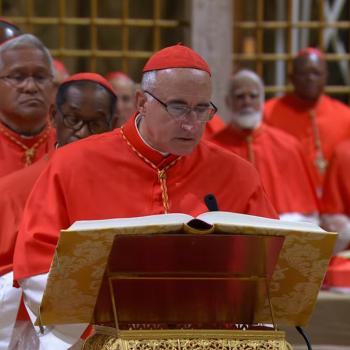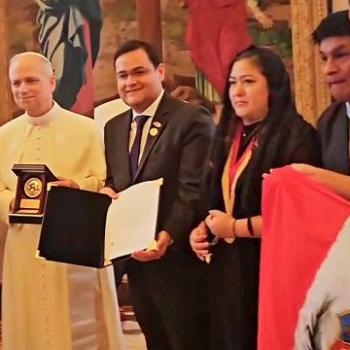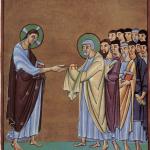At least one time each year, the Scripture readings of Mass present a fundamental principle of the Gospel: The Gospel of Jesus Christ is universal. Jesus offers salvation to all peoples with absolutely no exceptions. Nationality, ethnicity, race, legal status, intelligence, wealth and so many other elements which often create divisions in society do not matter to the eyes of God when it comes to offering His salvation.
At the time of Jesus, salvation from God to all peoples was a radical concept. The Jewish understanding of salvation was narrow-minded: They understood that God offered salvation to them. Everyone else, since God had not picked them as part of the chosen people, had to kept at arm’s length, they had to be avoided.
This understanding gave rise to the strict separation between Jews and Gentiles, non-Jews. Contact with non-Jews made you impure, so for Jews to remain pure, they had limited to no contact at all with Gentiles. Among the most despised Gentiles were the Samaritans (who practiced a modified version of Judaism) and the Canaanites (who had been displaced from the Promised Land when the Israelites returned from Egypt).
We are familiar with Jesus’ praise of a Samaritan in the Parable of the Good Samaritan. A Samaritan, an enemy for all Jews, was the only one who stopped to help a wounded man.
In today’s Gospel, we heard of a Canaanite woman who approaches Jesus begging for a miracle.
Jesus seems harsh at first towards the woman, seemingly ignoring flat out her request.
“I was sent only to the lost sheep of the house of Israel.” His words push her away, affirming that He is offering salvation to the Jews.
Yet, the woman pleads and Jesus graciously extends salvation to her. Jesus praises her faith in the same manner he praised the actions of the Good Samaritan. Through his words and actions, Jesus extends salvation to all peoples, regardless of background or social acceptance.
Even though Jesus’ words and actions shook up his contemporaries, what he said and did had already been predicted. God spoke through the prophet Isaiah, we heard it in the first reading, “my house shall be called a house of prayer for all peoples.” At Jesus’ time, the House of God, the Temple of Jerusalem, could only be entered by Jews. Jesus is now opening up access to God to all peoples, to all nations. In the new covenant, all peoples would gather to pray together, including the foreigner and the stranger.
Some Jews did not like this. They probably felt cheated. They probably felt less special now that their God offered salvation to them and the Gentiles. They were no longer “unique.”
Saint Paul had to deal with this tension since he preached mostly to Gentiles. Paul tells the Romans that his ministry to them has made Jews jealous, yet he hopes many of them will be saved through his ministry.
Jesus fulfilled God’s plan of salvation for all humanity. God began his work of salvation by choosing the Jewish people and out of them, in Jesus Christ, salvation was offered to the whole world. Jesus fulfills God’s plan by extending salvation to all peoples and all nations.
The challenge presented to us today by these readings is simple: How well do we imitate God’s concern for the salvation of all souls? How well do we imitate God’s love for every person?
Do I reach out to those different from me? Do I consider the foreigner and stranger in my midst, regardless of skin color, legal status, handicaps etc., to be part of God’s family, part of my own family? In God’s eyes, in the loving care of the Church, we are all brothers and sisters and the same Saving Gospel is offered to us all.
At Mass Jesus makes himself present in our midst and offers himself equally for each one of us. He does so not just here, but in the thousands of altars throughout the world. He offers salvation to each of us with our differences, with our shortfalls and with our strengths.
May He allow us to recognize Him not just in the Eucharist, but also in the faces of those around us here at church, those around us at work, at the store and everywhere else we may go. May Jesus strengthen us to extend His saving work here and now by seeing Christ in all peoples, in all nations, without distinction or division. By doing this, we participate in the spread of the Gospel by bringing the Good News to every people and every nation.
Homily for the 20th Sunday of Ordinary Time Year A















